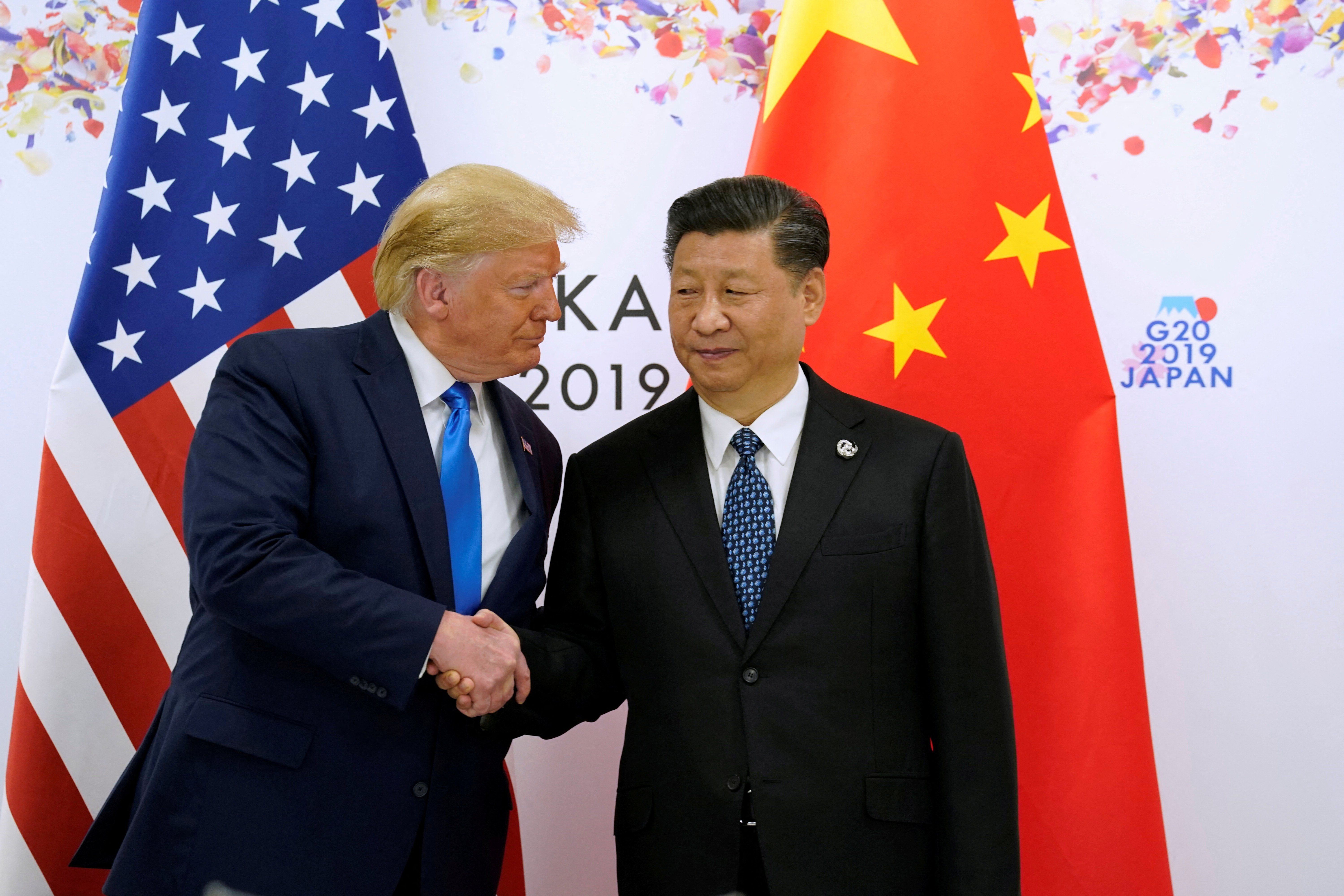President Donald Trump and President Xi Jinping of China are meeting in South Korea this week in what analysts tell the New York Times is a sign of "the new strongman era."
“Mr. Trump and Mr. Xi, and the nations they lead, differ of course in myriad ways. Yet both men have sought to bend their political systems to their will,” said authors Erica Frantz and Andrea Kendall-Taylor tell the New York Times. “Trump has hijacked the Republican Party and made it into a personal political vehicle. Mr. Xi asserts a degree of control over China that Mao would have envied.”
The authors said Trump and Xi’s lack of domestic constraints gives them great latitude for deal-making, but it also makes their potential agreements "flimsy" and subject to change.
“Strongmen can be unreliable international partners. Surrounded by loyalists and weakened restraints on their power, they face few domestic consequences for reneging on promises or abruptly changing course,” they said. “We’ve seen this already from the two presidents: The Trump administration accuses China of failing to honor trade pledges made during Mr. Trump’s first term, and Mr. Trump himself has repeatedly announced tariffs on trade partners this year only to reverse himself soon after.”
The absence of constraints can work against global security “because strongmen are not held accountable,” they said. "... Amid the bluster, their counterparts find it difficult to gauge where the red lines truly are — Mr. Trump delivered multiple ultimatums to Mr. Putin for a cease-fire in Ukraine that he has systematically ignored."
“Whatever rhetoric or handshake deals come out of their planned encounter at a regional summit in South Korea, they are unlikely to signify more than a momentary truce between two leaders unchecked by domestic or institutional constraints and free to change course on a whim,” they said, adding that expectations fade in the environment of empty promises and threats because authoritarian leaders are more likely to take risks, start wars and escalate conflicts.
“Welcome to the new strongman era,” they said, where Russian leader Vladimir Putin, surrounded by his dedicated sycophants, invaded Ukraine on a whim and started a war that has mired his nation in new bills and rattled the world. It’s also a world where Trump can carry out extrajudicial killings of alleged drug smugglers in the Caribbean and threaten to attack Venezuela. And it’s a world where Xi can threaten military action in the South China Sea and Taiwan Strait.
It's the same world where strongmen “pad their pockets and those of their loyalists” while undermining their own economies by shifting assets offshore, like Xi’s family amassing more than $1 billion in assets despite Xi’s purported “anti-corruption campaign” to purge his rivals, they said. Meanwhile Trump’s family has involved themselves in lucrative deals in Middle East real estate, cryptocurrency and licensing fees.
Authors said international governments only recently became more democratic after World War II, with “solid institutions, alliances and rules” leading to an unprecedented era of global peace and prosperity.
“That era is fading,” they said.
Read the New York Times report at this link.
